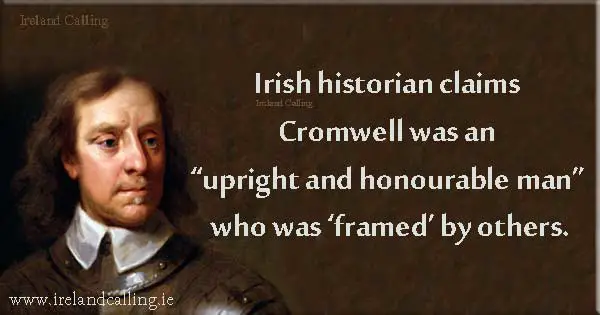A new book that suggests that Oliver Cromwell was framed and was never as violent and destructive as generally thought is likely to cause a stir among Irish scholars and the general public.

Cromwell’s invasion of Ireland in 1649 led to the massacre of thousands of Irish civilians.
However, amateur Irish historian, Tom Reilly, believes Cromwell’s men didn’t intentionally harm any civilians at the Siege of Drogheda in September 1649. He first made the claim in a book he wrote 15 years ago. His views proved controversial and were largely dismissed by historians.
The widely accepted version of history is that Cromwell and his men killed thousands of Catholics in Ireland. He did this after distributing propaganda to the English public that suggested that several thousand English Protestants had been massacred by Irish Catholics.
Now, 15 years later after the first book, Reilly has written a follow-up that addresses some of the points his critics made last time around. He says: “A lot of the academic people who have made comments on it in the past, they are just wrong, it’s as simple as that.”
Reilly, who is from Drogheda and has studied local records, said: “Loads of names of people existed at that time who I was told shouldn’t exist because Cromwell killed them – it just didn’t make any sense.”
He suggests that Cromwell was made a scapegoat for the atrocities that did occur and the people really to blame were anti-Catholic members of the British parliament who were in power following the overthrowing of King Charles I. He accepts that his book is likely to upset quite a few people but said: “I’m not a Cromwell lover by any means but in my opinion he was upright and honourable.”
However, Joan Redmond, a PhD student in Cambridge, said that news-sheets had been distributed around England on Cromwell’s orders saying that thousands of British Protestants had been killed by the Irish in a bid to justify the attacks to the English public.
She also said that Cromwell was equally violent towards the English. She said: “He also had a few incidents in England where he stormed places, particularly where Catholic troops were holding down forts, and towns, and behaved violently there as well, this includes the storming of Basing House in Hampshire in 1645.”
However, Reilly remains adamant that Cromwell has been made the scapegoat for atrocities committed by others.
Tweet
